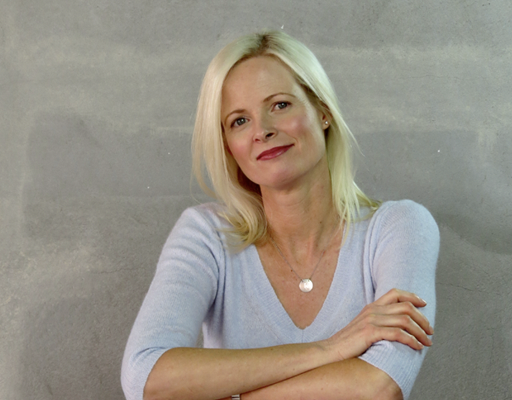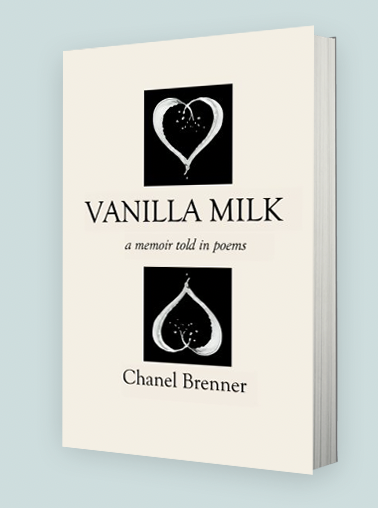When They Call to Tell You Your Son Is Dying
Published in Enizagam.
Go to your vanity
and greet your ghost.
Smooth foundation
onto your ashen face.
Dot concealer on dark
under-eye circles.
You must dust your face
with rice powder,
mark your cheekbones
with bloodroot.
Gloss your lashes with mascara,
separate them with a brush.
Paint your lips
with Afghan red.
Draw fierce blue lines
around your eyes.
If anyone asks
why you’re doing this,
say it’s the last time
you will look this alive.
We Never Heal, Just Remember Less
Published in Spoon River Poetry Review.
Stretching my legs
after a walk down our old street,
my dead son’s face came to me,
the scar below
his left eyebrow, the window
of his missing two front teeth
so clear, I had to sit
for a minute, on someone else’s porch.
Four years since Riley died;
since the tsunami hit Japan—
all those children swept away.
You’d think we’d heal, yet today,
at our younger son’s game,
as Desmond raced toward home,
his father cheered, Go Riley!
We stared at one another,
seeing our first son
fall all over again—
skull of memory cracked open
against concrete.
Raising Grief
Published in Duende.
Mourning was born,
colicky, wet-eyed.
Trying to console her,
sleep-deprived,
I pushed her
in a stroller,
tried every octave.
Those first years
bled nights—
falling asleep
with her in my arms,
breathing in unison,
protecting the fontanel
on her fragile head.
Now, I know
to feed her sweet-bread,
and help her self-soothe
when she seethes.
Before she runs off
to climb a tree,
she nuzzles me
on a park bench,
swinging her legs
like a four-year-old.
Clear-Cut
Published in Cider Press Review.
It falls from my binder,
cherry crayon streaks
ripen in sun, LOVE RILEY—
a valentine from my son,
three weeks before he died,
cutout paper once a tree,
before its felling,
and reduction to pulp.
I pick up the heart,
hold it like a seed I’ll save
to grow an oak.
I couldn’t answer
his question,
Mommy, does paper
remember being a tree?
Apology
First Place in the Smartish Pace Beullah Rose Poetry Prize.
After you died,
I had the branches trimmed,
to let more light
into our tomb.
When sun flamed
our sheer curtains that day,
I realized how much
had been removed—
the maimed trunk
standing naked
in the massacre of branches
lapping its feet,
like a rising tide of grief.
I still see
you climbing
on whole limbs,
sun haloing your hair
through the green screen.
My fear of your death
dead too,
but still burning
like an afterimage,
as you climb the invisible,
no earth to fall on,
or soft bones to break
on stone.
July 28th, 2012
Winner of The Write Place At the Write Time’s Contest judged by Ellen Bass.
It’s Riley’s second birthday,
without us.
He would have been
eight.
Instead of dead.
Instead of chalk dust.
Instead of oysterless chips of pearls.
Instead of a giant,
insatiable pit.
Instead of a collage of photos
and cutout red crayoned hearts.
Instead of our tears.
Instead of a vanilla birthday cake
bejeweled with his name.
Instead of a ghost,
haunted by us.
Instead of frozen
at six and a half.
Instead of this fucking poem.
A Poem for Women Who Don’t Want Children
Finalist in the 2013 Rattle Poetry Prize.
I won’t preach about the rewards of motherhood.
I won’t say it’s the best thing that ever happened to me.
I won’t say it’s the best job I’ve ever had.
I won’t say you’ll regret
not having a child.
I won’t say you’ll forget what life was like before.
I won’t say it makes life worth living.
What I will say
is my son died.
What I will say
is I would do it again.
I Have 2x the Love for 1 Child
Published in Cultural Weekly.
Since the death
of my older son,
I worry that the weight
of my love is too heavy.
I see my son hunched over,
carrying my grief
like a load of stones.
I worry he’ll learn
to bask in that love
till he sunburns,
come to crave
the sting and heat of it.
I worry that he is forming
like a rock in a river bed,
my grief-ridden love
rushing over him
like whitewater.
I worry that one day,
a woman will ask him
why her love is not enough,
and he won’t know
the answer.
What Would Wislawa Szymborska Do?
Was displayed in the James Whitcomb Riley Museum in Indianapolis.
Un-burn his flesh, return chips
of bone and teeth, powdery ashes,
like seeds in soil newly sown.
Reclaim his heart,
kidneys, liver, kindly return
the recipients their own.
Cross a line through the words,
He died, reclassify
Arteriovenous Malformation,
a work of fiction.
Tuck him back in his bed
to awaken from dreaming.
Create something out
of nothing, life from loss.
Isn’t that what poets do?


